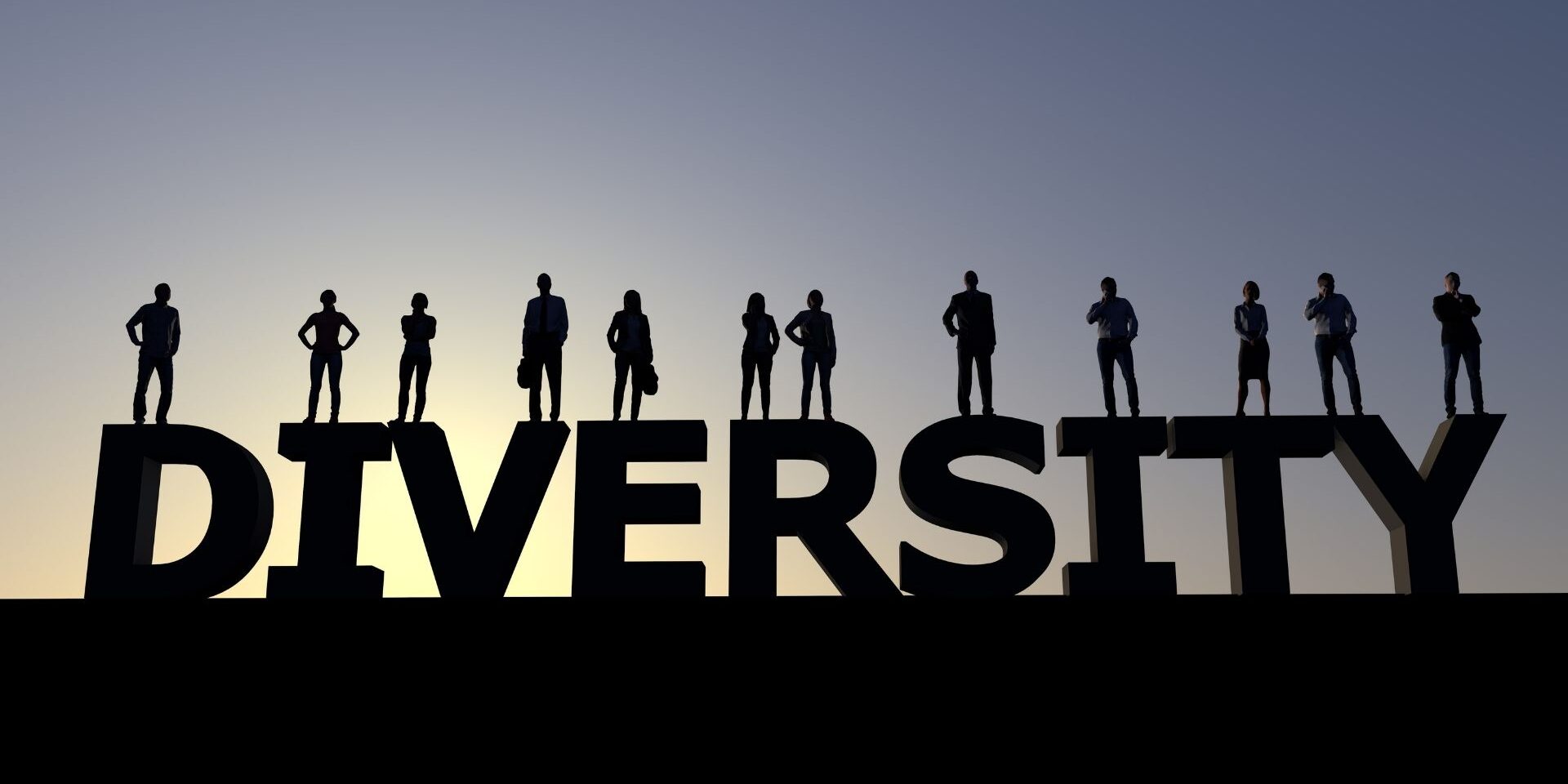DEI has been getting somewhat of a bad rap in the corporate world lately. Despite the almost universal importance admitted by countless CEOs, it has been get pummeled by certain radical voices. Not the least among them is Elon Musk, who has been very vocal about his aversion to DEI hiring practices. More recently, he has come out in support of a blog written by Alexandr Wang. He is the CEO of Scale AI, a startup valued at $4 billion offering companies with labeled data for training artificial intelligence models. You can read about his opinions and Musk’s own in this Fortune article.
The fortune cookie of it is that CEO Wang opts for an MEI-based approach for hiring rather than a DEI approach. His penned blog mentions that he holds that for merit, excellence, and intelligence. He was also quick to criticize DEI advocates for lacking in business prudence. Critics have, however, been quick to point out that the merit-based approach that Wang talks of is not that far off from what DEI stands for. In fact, the two are very closely aligned if examined in detail.
Keeping these perspectives in mind, we can look at how DEI still offers considerable value to businesses and is necessary for a fairer and better world:


5 Ways DEI Improves Operational Efficiency
What Does DEI Offer to Businesses Today?
Fair Competition Value
Key Takeaways:
-
DEI as a competitive policy enables fair competition particularly for internationally expanding businesses.
-
It creates globally procurable talent pools of the best-in-class professionals.
-
It also showcases to government policymakers that companies are willing to play fair in competition.
Historically speaking, markets have always wanted more competition among businesses. This is the bedrock of modern economics and society. That is why, DEI serves as an advantage leveraging opportunity for businesses with prudent hiring practices. Able CHROs understand how to use their DEI practices as a means of increasing their market competition. They understand how to develop operational efficiency by foreseeing market growth and making strategic HR investments in organizations at all levels. The fundamental idea behind DEI in this context revolves around creating incremental value on the basis of strategic human resource leverage.
The business case for gender diversity on executive teams1 has more than doubled over the past decade. Each of our reports—2015, 2018, 2020, and now 2023—has found a steady upward trend, tracking ever greater representation of women on executive teams. At each time point we have assessed the data, the likelihood of financial outperformance gap has grown: Our 2015 report found top-quartile companies had a 15 percent greater likelihood of financial outperformance versus their bottom-quartile peers; this year, that figure hits 39 percent —— McKinsey Diversity Report
A strong DEI program also indicates to government bodies that the company is a genuine investor in fair trade practices. While there is no direct link between DEI and competition fairness, there is a strong attribution of fair hiring policies and HR management. And this reflects in the way the company does business and in turn, is perceived by government bodies. This may also cause companies who are not open to foreign collaboration to take a softer stance and become willing to share their resources and market brand reputation more willingly.
International Market Access
Key Takeaways:
-
Global talent pools integrated via DEI programs open up global markets much more easily.
-
Businesses with strong DEI values have better market penetration thanks to the ease of localization
-
DEI teams have better performance since they can tap into local market elements much more effectively.
The biggest reason why DEI improves operational efficiency for a lot of businesses is that it opens up new vistas for commerce. When recruiting from international talent pools, businesses stand to gain access to seasoned professionals with direct expertise in dedicated markets. For example, companies recruiting remote software developers from India stand to benefit from their local market knowledge. This is particularly true if they are looking to establish offices in the local region after probing for market opportunities.
Here;’s an example from an interview with URBIS CEO Alan MacDonald published in the CEO magazine:
Currently, the board comprises seven directors and seven associate directors, together encompassing nine different nationalities, and leading a complement of 90 staff, from landscape architects and town planners to urban designers and horticulturalists in offices in Hong Kong and Shanghai.
In this regard, DEI is a forerunner for enabling businesses to expand into newer markets. With its afforded local opportunities and talent management options, it can deliver significant value to HR processes. The universally acknowledged way to grow a regional presence is by hiring local talent. So, developing local talent pools and creating DEI-driven teams that can access international caliber business is an inherent step needed for success. This also affords the option of recruiting top performers for the larger markets so they can grow into regional leaders instead of just handling middle-of-the-line business processes.
Feeling TLDR? Don’t skip out on us without getting what we promised to give you. Check out this video and get tall the best highlight form this blog on DEI vs MEI in 60 secs or less.
Courting the Innovation Edge
Key Takeaways:
-
Diversity is directly proportionate to innovation with the caveat of excellence remaining consistent across the spectrum of activities
-
Market-specific innovation for local markets fares better with members who are naturally part of that culture.
-
International talent pools enable creative innovation at a global level while ensuring it is scaled down to local tiers for effective expression.
DEI programs are often run on team collaboration platforms since it is simply easier to work these processes into employee engagement activities. And this is also where DEI put up its strongest argument for enhancing operational efficiency. By allowing for dynamic interaction across any number of employee engagement activities, DEI fosters innovation and growth. Exposure to diverse elements and perspectives is a gift for creative thinkers. Since they can break from the normative and think about novel paradigms, this leads to a higher chance of coming up with novel ideas or approaches to solving business problems.
In certain contexts, DEI also enables companies to adopt tech or methodologies that are specific to niche markets. Using their approach and integrating it into the regular business process allows companies to create a more competitive value-based process. This is only possible by systematically working up DEI inclusion with an eye toward strategic HR leveraging for specific markets. For example, a highly-developed tech economy like South Korea produces highly skilled developers. Integrating their processes into a high-value cyclical system with seasoned professionals helps businesses compete better both locally and internationally.


DEI and the power of self-awareness for enhancing operational efficiency
Building Trust & Goodwill
Key Takeaways:
-
DEI activities build organic value for brands by integrating diverse talents into their fold.
-
They can also showcase their willingness to integrate at a CSR and ESG level through their DEI activities
-
Offering DEI-based training creates market goodwill and firmly places business interests in market-specific arenas.
DEI activities are a sign that companies are willing to invest more than just their money into any given market. When recruiting from diverse talent pools, it is important to integrate the new people’s culture as well. This is not just a sign of goodwill but also an opportunity for dynamic growth and operational efficiency enhancement. It is highly likely that companies that use DEI to grow their business ranks also stand to gain socio-culturally from it. Using the employee engagement tools they have, they can integrate broad elements of the new culture and create a robust approach to developing a market presence.
“Everyone is on a spectrum in terms of their level of self-focus versus other-focus. And a person doesn’t necessarily have to have self-awareness to have power. On one end, someone may have no self-awareness, yet they might hold a great deal of power. Then on the other end, someone may be so empathetic and other-focused that they have a hard time articulating what they really value and what they are willing to take a stand for.” – Forbes Article
\Broadly speaking, this is part of CSR activities and it ties with ESG as well. Many markets depend on local cultures and traditions which then translate to environmental conservation values or cultural definitions that companies must keep in mind. Using diversity equity and inclusivity as a benchmark for how to operate in the market helps businesses create significant value while also leveraging their best culturally sensitive HR assets to navigate business relations with local operators and government bodies.
Pioneering the Human Business Transformation
Key Takeaways:
-
People-first approaches to business-ing has gained significant ground recently and DEI is a big piece of that equation.
-
Diversity creates greater competition which feeds the growth of midline leaders like changemakers
-
Human-centric business transformation in an AI age is built on trust and DEI is a strong note in that symphony
Business transformation processes leverage technology at the forefront of their change-up. But for large corporations, it needs to be more than just transformation. They need human integration across all their offices and operational areas. This also translates to creating inclusive environments for markets via increasing operational efficiency. Whether B2B or B2C, such that customers or clients become a direct part of the brand’sstory. This is only possible with DE initiatives that focus on delivering nuanced value that is both culturally-sensitive as well and sophisticated enough to remain globally competitive.
So, tapping into the cultural diversity factor is a great way for companies to define how they want to integrate into regional markets. This is the ideal way to enter into these domains since it does so with holistic integration. Further, they can take up the specific value addition made by culturally diverse individuals to further bolster their diversity factor globally. This is a certain advantage that creates considerable novelty leverage. If used effectively, DEI is a strong human business transformation tool that puts humanity at the center of all processes and creates long-lasting scalability leverage.
Are You Ready to Work Up Your DEI Activities & Efforts in a Better Way?
Creating DEI value is a massive bonus for all kinds of businesses and processes. Effective DEI programs leverage not just diversity but also merit-based hiring. So, it is, in fact, not far away from what Elon Musk, Alkexandr Wang, and other DEI detractors are voicing in opposition. If done effectively via a high-functioning employee engagement platform like LEAD.bot, companies can develop; very culturally rich and high-performing talent pools and ensure their long-term sustainability.
LEAD.bot is a team engagement platform available on Slack and Teams. It is an all-in-one team development software with features like virtual coffee chats, buddy programs, birthday celebrations & work anniversary celebrations, new hire onboarding programs, and Pulse Surveys.
LEAD.bot also offers cutting-edge Organizational Network Analysis (ONA) for big enterprises and institutions. Executive to mid-level managers use ONA to gain highly actionable insights and build strong workplace connections. Using this app enables developing innovative employee engagement ideas to connect employees and foster better organizational health, employee retention, and overall performance with this simple app!
LEAD.bot is a product of LEAD.app and we also LEAD.bot’s sister app Sunrize which showcases workplace attendance by graphs right on Slack! Book a demo now!












